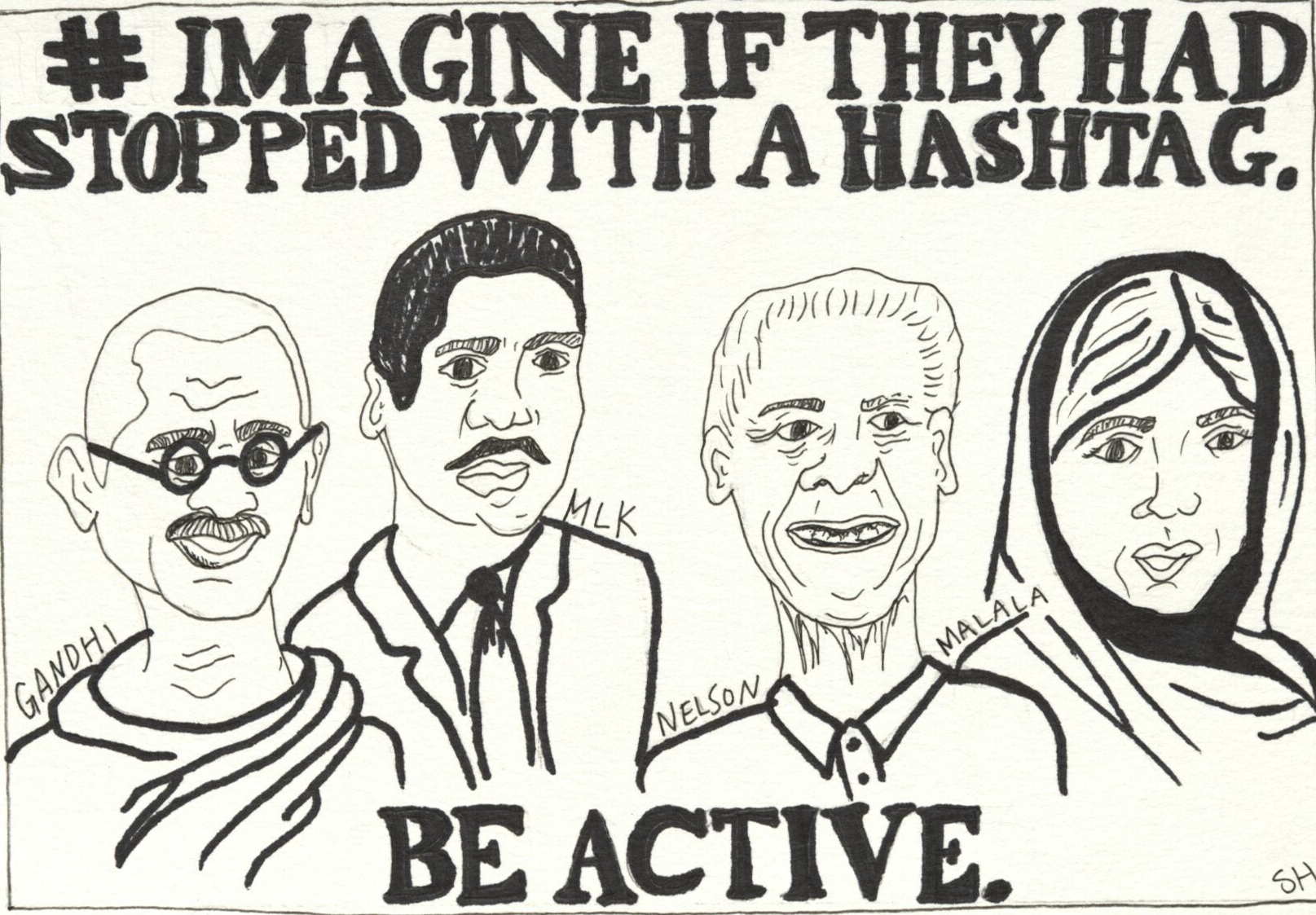The times they are a-changin’ my friends, at least a little. Over the past couple of weeks, you’re bound to have seen a flood of #MeToo, #Ibelieveyou, and #HowIwillchange messages on your Facebook and Twitter feeds. But how do you take the lessons of hashtag activism to the next level?
In this column I usually use the outside world to talk about sex and relationships, but this week I’d like to turn that format on its head. Survivors of sexual harassment and assault are not the only survivors in our society, and are not the only group that need support and solidarity. The #MeToo campaign offers the perfect opportunity for us all to dig deep and take a look at the ways that we can all become better allies to fight systems of oppression in their various forms.
1. Get informed. Don’t wait for the next hashtag campaign to get informed about the struggles of others. Seek out information about forms of oppression that don’t directly affect you. Attend a meeting for an issue-focused club and listen to what different groups are working on. Search for news online that discusses the struggles of diverse groups (it’s best if you look for this information at the source, and not just a bunch of random opinion pieces from unrelated sources). Figure out who the leaders of national and global activism are for a particular issue and see how they’re working to make change and where they’re struggling.
2. Are you a fortunate son? Unpack your privilege. If you are part of a privileged group, then you probably benefit from a system which oppresses other people. Oppression can be passive. Often a privileged majority doing nothing is part of what perpetuates a privileged minority’s violent extremes. You don’t have to be a rapist to be perpetuating violent, toxic masculinity. You don’t have to be a Nazi to be condoning white supremacy. Consider how you can change how you participate as an active participant in a system as well as a passive participant.
3. Talk about it, talk about it, talk about it, talk about it. Have open dialogues with your friends who perpetuate systems of privilege. You have access to these groups. Don’t be a bystander.
4. Don’t tell them to grow up and out of it. Be a better listener. It can be hard to know what to say when someone tells you that they’ve been hurt by a system of oppression and violence that you can’t immediately fix, but sometimes a friendly ear can go a long way. Don’t talk over someone when their experiences with oppression make you uncomfortable. Listen. You might learn something. Believe people when they tell you their stories. Ask respectful, noninvasive questions if you’re confused. A trick to determining whether or not a question is invasive is to ask yourself whether or not the question is even implicitly judgmental or triggering. Victim-blaming is not unique to discussions of sexual harassment and assault, and survivors don’t owe you their stories.
5. Don’t assume a single narrative. Give space for people whose stories don’t fit “typical” narratives of oppression and trauma. Often “typical” narratives just mean stories that only confront one form of oppression. People of every shape, size, race, expression of gender, gender assignation, sexuality, economic background, citizenship status, religion, age, range of physical ability and mental health experience harassment and oppression. Every person is a puzzle made up of many socially-assigned categories and identities which may conform or diverge from these categories. Every person is unique, so their experiences with oppression are also unique. What am I talking about? Intersectionality. Get hip to it.
6. Practice self-care. If you are a survivor of oppression, you don’t owe anyone your story. Sometimes the telling of a story can refresh trauma. Sometimes listening and reading about similar situations to your own traumas can be triggering. When stuff like this is in the media on a constant basis, it can be a lot to handle. Even if you’re an activist, it’s more than okay to step back from social media for a while. Sleep, work out, eat well, surround yourself with friends, find a community that understands your struggles, seek the help you need.
7. Support structures and resources which fight oppression and protect survivors. Donate time, money and visibility to the organizations working toward change.
8. Saturday night’s all right for fighting (injustice). Get a little action in. Get active! Join a club, attend a protest, write a letter to your representatives (and other relevant leadership figures).
9. Turn and face the strange ch-ch-changes.
Ready to support survivors of all forms of oppression? Me too!
Elizabeth B. is a Behind Closed Doors columnist who wants us to look beyond the hashtag even though it’s hard to see past those perpendicular lines.

